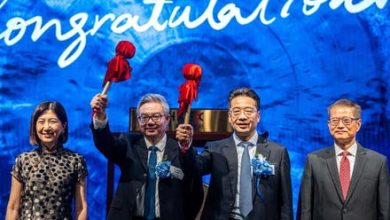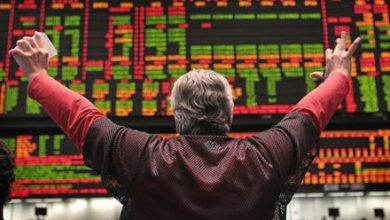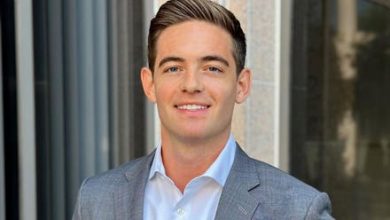Toyota Pilots Long Haul Hydrogen Trucks With Coca-Cola And Air Liquide

- Share to Facebook
- Share to Twitter
- Share to Linkedin
Toyota joins with Coca-Cola and Air Liquide for hydrogen fuel cell truck test pilot.
Toyota Europe
Global automaker Toyota (TYO: 7203) has launched a pilot program for new hydrogen-fueled long-haul trucks with zero tailpipe emissions in partnership with drinks giant Coca-Cola (NYSE: KO) and industrial fuels and technology specialist Air Liquide (EPA: AI).
The pilot trucks’ fuel cell system uses modules which combine hydrogen and oxygen molecules to produce water, simultaneously generating electricity to power the vehicle. As a consequence, water is the only tailpipe emission.
Toyota claims the system offers the further benefit of “fast refueling” and will help “support the decarbonization of heavy-duty road transport.”
The pilot project will provide Coca-Cola’s drink supply operations with a proof-of-concept vehicle to “demonstrate fuel cell technology’s efficiency and viability for heavy-duty transport” ahead of the 2024 Paris Summer Olympic Games, as Friday’s opening ceremony nears.
Air Liquide will be supplying green hydrogen (or hydrogen sourced from renewable energy) for fueling the vehicles. The project partners are also attempting to highlight the significance of the concurrent development of both vehicles and infrastructure to help foster a more sustainable society.
In Europe, heavy-duty haulage accounts for a quarter of the continent’s freight transport, based on tons-per-kilometer carried. Commercial trucks’ usage patterns and their demand for large volumes of hydrogen make them key contributors to the development of sustainable hydrogen infrastructures.
Google Confirms Bad News For 3 Billion Chrome Users—You Will Still Be Tracked
Here’s Why Biden Says He Dropped Out—In First Speech Since Leaving 2024 Race
Today’s NYT Mini Crossword Clues And Answers For Thursday, July 25
Immense Potential
Heavy-duty trucks equipped with hydrogen fuel cell technology have the potential to reduce the carbon footprint of long haul logistics operations and stimulate the development of a sustainable hydrogen refueling infrastructure.
function loadConnatixScript(document) {
if (!window.cnxel) {
window.cnxel = {};
window.cnxel.cmd = [];
var iframe = document.createElement(‘iframe’);
iframe.style.display = ‘none’;
iframe.onload = function() {
var iframeDoc = iframe.contentWindow.document;
var script = iframeDoc.createElement(‘script’);
script.src = ‘//cd.elements.video/player.js’ + ‘?cid=’ + ’62cec241-7d09-4462-afc2-f72f8d8ef40a’;
script.setAttribute(‘defer’, ‘1’);
script.setAttribute(‘type’, ‘text/javascript’);
iframeDoc.body.appendChild(script);
};
document.head.appendChild(iframe);
const preloadResourcesEndpoint = ‘https://cds.elements.video/a/preload-resources-ovp.json’;
fetch(preloadResourcesEndpoint, { priority: ‘low’ })
.then(response => {
if (!response.ok) {
throw new Error(‘Network response was not ok’, preloadResourcesEndpoint);
}
return response.json();
})
.then(data => {
const cssUrl = data.css;
const cssUrlLink = document.createElement(‘link’);
cssUrlLink.rel = ‘stylesheet’;
cssUrlLink.href = cssUrl;
cssUrlLink.as = ‘style’;
cssUrlLink.media = ‘print’;
cssUrlLink.onload = function() {
this.media = ‘all’;
};
document.head.appendChild(cssUrlLink);
const hls = data.hls;
const hlsScript = document.createElement(‘script’);
hlsScript.src = hls;
hlsScript.setAttribute(‘defer’, ‘1’);
hlsScript.setAttribute(‘type’, ‘text/javascript’);
document.head.appendChild(hlsScript);
}).catch(error => {
console.error(‘There was a problem with the fetch operation:’, error);
});
}
}
loadConnatixScript(document);
Thiebault Pacquet, Vice President of research and development at Toyota Motor Europe, said the collaboration represents the automaker’s objective of supporting and contributing as much as possible to the establishment of carbon neutral societies in Europe and beyond.
“To help speed up the expansion of hydrogen technology implementation in our society, we are expanding the use of our Toyota Fuel Cell Module beyond passenger cars and into trucks, buses, coaches, trains, boats, near-shore and short-sea vessels, stationary generators and so on.
“It is a great pleasure to collaborate with like-minded partners and demonstrate our shared vision of sustainable mobility. The insights gained from these proofs-of-concept will serve as crucial milestones on our path towards achieving zero tailpipe carbon emissions in our logistics operations by 2040.”
Erwin Penfornis, Vice President of Air Liquide’s hydrogen energy World Business Line unit said: “Air Liquide shares the same ambition as Coca-Cola and Toyota: implementing concrete solutions to meet the challenge of energy transition. This collaborative project is part of such an approach and will demonstrate the relevance of hydrogen for heavy-duty mobility.
“With a growing call for products with a low carbon transportation footprint, hydrogen is particularly well-suited to long-distance transportation, providing flexibility and productivity.”
Eric Desbonnets, Vice President of Paris 2024 Operations at Coca-Cola, said: “We are pleased to partner with Toyota and Air Liquide to test hydrogen solutions for our long-distance logistics operations. We want to learn from this experience as we continue to work towards reducing our carbon footprint.”
Toyota and Coca-Cola are worldwide partners of the Olympic Games, while Air Liquide is an official supporter.



